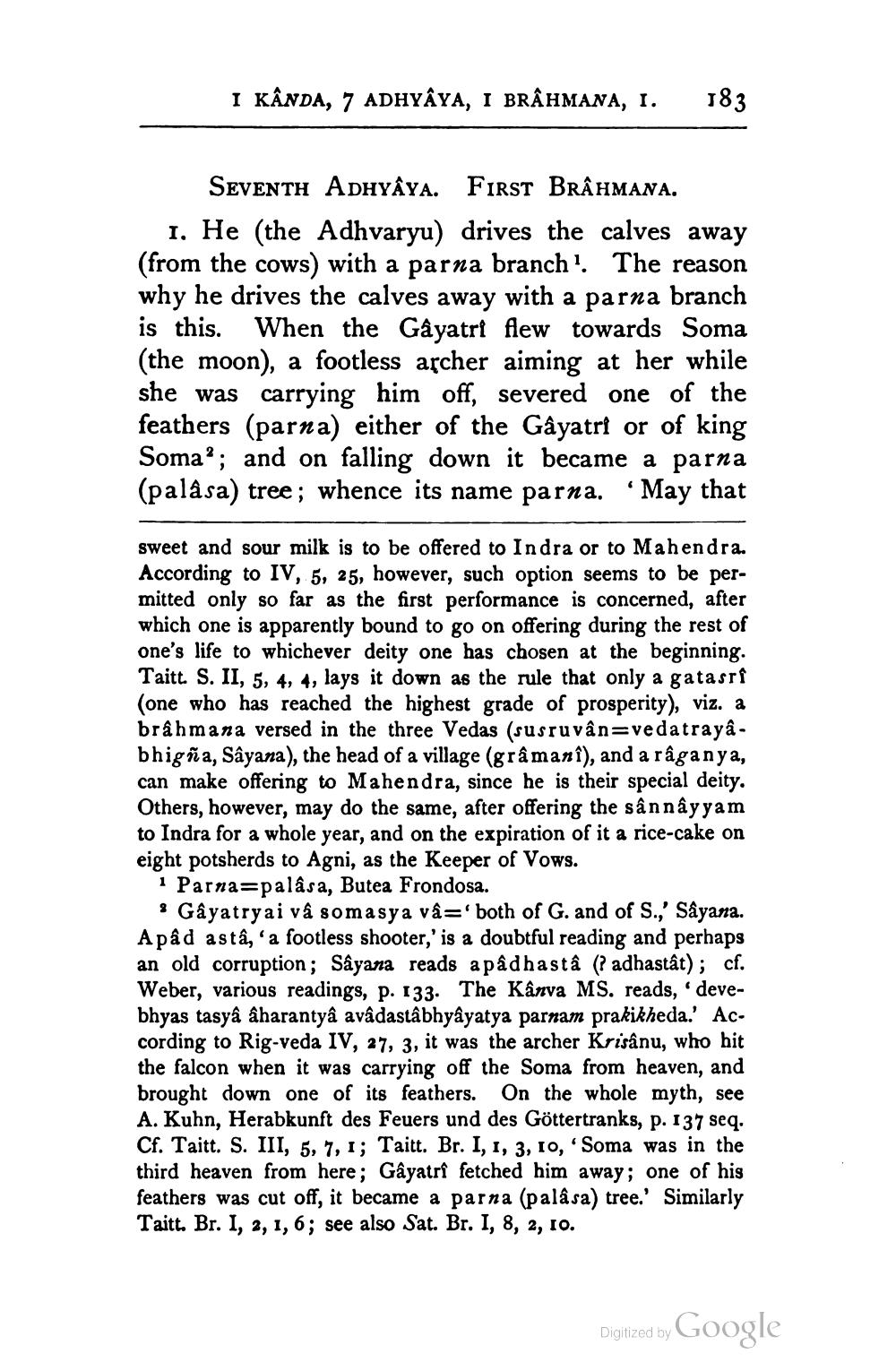________________
I KÂNDA, 7 ADHYAYA, I BRÂHMANA, 1.
183
SEVENTH ADHYÂYA. First BRÂHMANA. 1. He (the Adhvaryu) drives the calves away (from the cows) with a parna branch". The reason why he drives the calves away with a parna branch is this. When the Gâyatri flew towards Soma (the moon), a footless archer aiming at her while she was carrying him off, severed one of the feathers (parna) either of the Gayatri or of king Soma”; and on falling down it became a parna (palasa) tree; whence its name parna. "May that
sweet and sour milk is to be offered to Indra or to Mahendra. According to IV, 5, 25, however, such option seems to be permitted only so far as the first performance is concerned, after which one is apparently bound to go on offering during the rest of one's life to whichever deity one has chosen at the beginning Taitt. S. II, 5, 4, 4, lays it down as the rule that only a gatasrf (one who has reached the highest grade of prosperity), viz. a brahmana versed in the three Vedas (susruvân=vedatrayâbhig ña, Sayana), the head of a village (grâmani), and a râganya, can make offering to Mahendra, since he is their special deity. Others, however, may do the same, after offering the sân nâyyam to Indra for a whole year, and on the expiration of it a rice-cake on eight potsherds to Agni, as the Keeper of Vows.
1 Parna=palâsa, Butea Frondosa.
: Gayatryai va somasya vâ='both of G. and of S.,' Sayana. A pâd asta, a footless shooter,' is a doubtful reading and perhaps an old corruption; Sayana reads a padhasta (? adhastât); cf. Weber, various readings, p. 133. The Kanva MS. reads, devebhyas tasya aharantyâ avâdastâbhyâyatya parnam prakikheda.' According to Rig-veda IV, 27, 3, it was the archer Krisânu, who hit the falcon when it was carrying off the Soma from heaven, and brought down one of its feathers. On the whole myth, see A. Kuhn, Herabkunft des Feuers und des Göttertranks, p. 137 seq. Cf. Taitt. S. III, 5, 7, 1; Taitt. Br. I, 1, 3, 10, Soma was in the third heaven from here; Gâyatrî fetched him away; one of his feathers was cut off, it became a parna (palâ sa) tree.' Similarly Taitt. Br. I, 2, 1, 6; see also Sat. Br. I, 8, 2, 1o.
Digitized by Google




